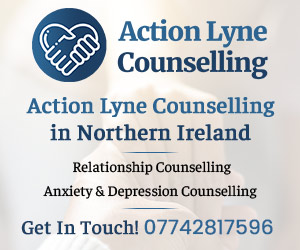14/04/2006
High rate of self-harm among Goths
Teenage Goths are more likely to self-harm and attempt suicide than teenagers involved in other subcultures, a study has found.
Researchers at the University of Glasgow surveyed 1,258 young people at the age of 11, 13, 15 and 19 about self-harm and identification with a variety of youth subcultures, including Goth.
They found that those belonging to the Goth subculture had a strong association with both self-harm and attempted suicide. Fifty-three per cent admitted to self-harming, while 47% had attempted suicide.
Researchers said that even after adjusting for factors such as social class, parental separation, smoking, alcohol use or previous depression, Goth identification remained the single strongest predictor of either self-harm or suicide attempt.
The Goth culture is usually associated with black clothing and dark rock music by artists such as Marilyn Manson.
Mr Robert Young, lead researcher on the study, said: "Although only fairly small numbers of young people identify as belonging to the Goth subculture, rates of self-harm and attempted suicide are very high among this group."
Mr Young suggested that Goth teens might be copying subcultural icons or peers. However, he also said that since the study found that more teens reported self-harming before, rather than after, becoming a Goth, this suggested that young people with a tendency to self-harm are attracted to the Goth subculture.
Rather than posing a risk, Mr Young suggested that by belonging to this subculture young people gained "valuable social and emotional support from their peers".
"However, the study was based on small numbers and replication is needed to confirm our results," Mr Young added.
Dr Michael van Beinum, Consultant Child and Adolescent Psychiatrist and advisor to the study said: "Mental health problems are common in young people and there is evidence that they are on the increase. For some young people with mental health problems, a Goth subculture may be attractive, as it may allow them to find a community within which it may be easier for their distress to be understood.
"Social support is important for all young people to help them cope with difficulties they face and therefore finding a peer group of like-minded Goths may, for some, be adaptive. Adults helping young people in difficulty need to be aware that those who clearly identify with Goth subculture may also be self-harming and may benefit from learning further coping mechanisms to help them overcome inner distress. Further provision of mental health services for all young people is urgently required."
(KMcA)
Researchers at the University of Glasgow surveyed 1,258 young people at the age of 11, 13, 15 and 19 about self-harm and identification with a variety of youth subcultures, including Goth.
They found that those belonging to the Goth subculture had a strong association with both self-harm and attempted suicide. Fifty-three per cent admitted to self-harming, while 47% had attempted suicide.
Researchers said that even after adjusting for factors such as social class, parental separation, smoking, alcohol use or previous depression, Goth identification remained the single strongest predictor of either self-harm or suicide attempt.
The Goth culture is usually associated with black clothing and dark rock music by artists such as Marilyn Manson.
Mr Robert Young, lead researcher on the study, said: "Although only fairly small numbers of young people identify as belonging to the Goth subculture, rates of self-harm and attempted suicide are very high among this group."
Mr Young suggested that Goth teens might be copying subcultural icons or peers. However, he also said that since the study found that more teens reported self-harming before, rather than after, becoming a Goth, this suggested that young people with a tendency to self-harm are attracted to the Goth subculture.
Rather than posing a risk, Mr Young suggested that by belonging to this subculture young people gained "valuable social and emotional support from their peers".
"However, the study was based on small numbers and replication is needed to confirm our results," Mr Young added.
Dr Michael van Beinum, Consultant Child and Adolescent Psychiatrist and advisor to the study said: "Mental health problems are common in young people and there is evidence that they are on the increase. For some young people with mental health problems, a Goth subculture may be attractive, as it may allow them to find a community within which it may be easier for their distress to be understood.
"Social support is important for all young people to help them cope with difficulties they face and therefore finding a peer group of like-minded Goths may, for some, be adaptive. Adults helping young people in difficulty need to be aware that those who clearly identify with Goth subculture may also be self-harming and may benefit from learning further coping mechanisms to help them overcome inner distress. Further provision of mental health services for all young people is urgently required."
(KMcA)
Related UK National News Stories
Click here for the latest headlines.
28 August 2015
Study Suggests 'Goths' At Higher Risk Of Depression
Young people who identify themselves as 'goths' are more likely to be at risk of depression and self-harm, according to new research. Findings published in The Lancet Psychiatry journal show that teenagers who identified strongly with being a goth at age 15 were three times more likely to be clinically depressed.
Study Suggests 'Goths' At Higher Risk Of Depression
Young people who identify themselves as 'goths' are more likely to be at risk of depression and self-harm, according to new research. Findings published in The Lancet Psychiatry journal show that teenagers who identified strongly with being a goth at age 15 were three times more likely to be clinically depressed.
21 August 2015
Teenager Jailed For Abduction And Grooming Of Children
An 18-year-old man has been jailed on charges of abduction and grooming. Josh Bennett, of Underwood, Rochdale, was found to have used Facebook to pester underage children for sex - and allowed his flat to be used as a refuge for missing children.
Teenager Jailed For Abduction And Grooming Of Children
An 18-year-old man has been jailed on charges of abduction and grooming. Josh Bennett, of Underwood, Rochdale, was found to have used Facebook to pester underage children for sex - and allowed his flat to be used as a refuge for missing children.
18 January 2012
Police To Rethink Trident
The Metropolitan Police have revealed it is developing a new strategy to tackle gang-related crime and serious youth violence in London.
Police To Rethink Trident
The Metropolitan Police have revealed it is developing a new strategy to tackle gang-related crime and serious youth violence in London.
19 September 2003
Suicide rates in young men are rising, claim scientists
Conventional methods for assessing trends in suicide rates mask an "important increase in suicide rates among younger men", according to a letter appearing in this week’s issue of The Lancet from two scientists at Bristol University.
Suicide rates in young men are rising, claim scientists
Conventional methods for assessing trends in suicide rates mask an "important increase in suicide rates among younger men", according to a letter appearing in this week’s issue of The Lancet from two scientists at Bristol University.
10 June 2003
Warning issued over prescribing seroxat to children
Patients under the age of 18 should not be prescribed the anti-depressant Seroxat (paroxetine), according to the Medicines and Healthcare products Regulatory Agency (MHRA).
Warning issued over prescribing seroxat to children
Patients under the age of 18 should not be prescribed the anti-depressant Seroxat (paroxetine), according to the Medicines and Healthcare products Regulatory Agency (MHRA).
-




 Northern Ireland WeatherToday:A sunny but frosty start for many. However cloud increases by midday with a few showers reaching the north coast, these mostly light but spreading inland this afternoon. Chilly. Maximum temperature 8 °C.Tonight:A rather cloudy evening with scattered showers. Becoming drier through the night with some good clear spells developing and a patchy frost away from coasts. Minimum temperature 0 °C.
Northern Ireland WeatherToday:A sunny but frosty start for many. However cloud increases by midday with a few showers reaching the north coast, these mostly light but spreading inland this afternoon. Chilly. Maximum temperature 8 °C.Tonight:A rather cloudy evening with scattered showers. Becoming drier through the night with some good clear spells developing and a patchy frost away from coasts. Minimum temperature 0 °C.

